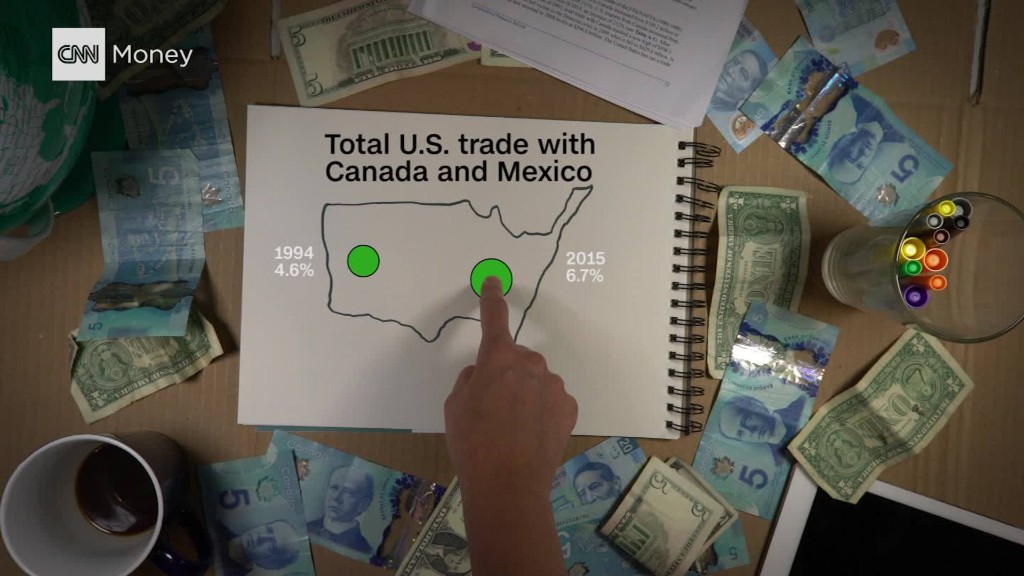
President Trump just got the man he tapped to negotiate better trade deals for America.
Trump's U.S. Trade Representative nominee, Robert Lighthizer, was confirmed by the Senate on Thursday, paving the way for him to renegotiate NAFTA, the free trade deal between the US, Mexico and Canada.
A delay in Lighthizer's confirmation had held up the NAFTA negotiation process.
Trump is required to trigger a 90-day consultation period before his team can even get to the negotiating table with Mexican and Canadian officials. Both Mexico and Canada have already set their processes in motion. But he and Commerce Secretary Wilbur Ross were reluctant to start it without Lighthizer.
Although Lighthizer was confirmed in a landslide, notable Senators, such as John McCain, voted against him, citing fears that Lighthizer's renegotiation of NAFTA will hurt states like Arizona which depend on free trade.
Related: These states depend the most on NAFTA
"We fear that you do not have an appreciation for the millions of jobs created by this free trade deal," McCain and Senator Ben Sasse of Nebraska wrote in a letter to Lighthizer.
According to the US Chamber of Commerce, 14 million US jobs depend on trade with Canada and Mexico. That figure has expanded greatly since NAFTA became law in 1994.
In addition to being confirmed, Lighthizer is also expected to get a special permission from Congress called "fast track."
Fast track -- formally called Trade Promotion Authority -- allows Lighthizer to negotiate trade deals and then present them to Congress for a simple up or down vote without any power to amend them.
The fast track authority lasts for three years and he can receive another three years of it through executive action. He will have that authority to negotiate any trade deals during that time frame.
Related: Trump on NAFTA: 'Will I settle for less than I go in with? Yes'
A former Reagan trade adviser and corporate lawyer, Lighthizer is highly respected in the trade world. He represented US steel companies who battled with Chinese peers over alleged unfair practices.
Lighthizer's confirmation will also allow Trump to give more details on what he wants a new NAFTA to look like. By law, when Trump triggers the 90-day consultation, he must specifically detail what he wants to change in the agreement and schedule a time period for negotiations.
If the administration triggers the consultation period next week, NAFTA negotiations with Canada and Mexico could start in August at the earliest.
Trump has lambasted NAFTA and blamed the agreement for the loss of millions of US manufacturing jobs to Mexico. His administration also recently slapped a 20% tariff on Canadian lumber, and he has threatened to tax goods coming in from Mexico -- a threat which Mexican officials said would be met with retaliation.
Lighthizer is about to enter this tense environment to get a trade deal that his boss has promised will bring jobs back to America.


